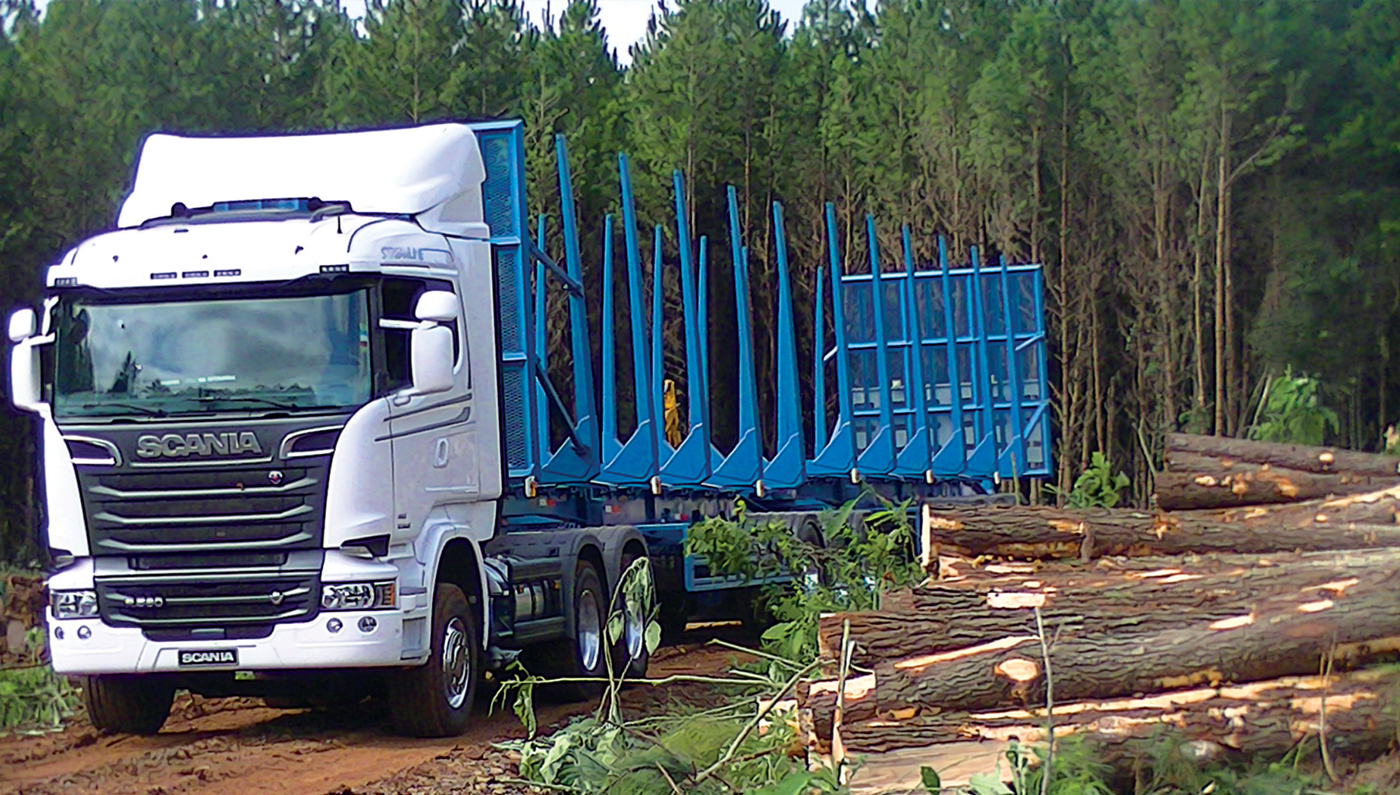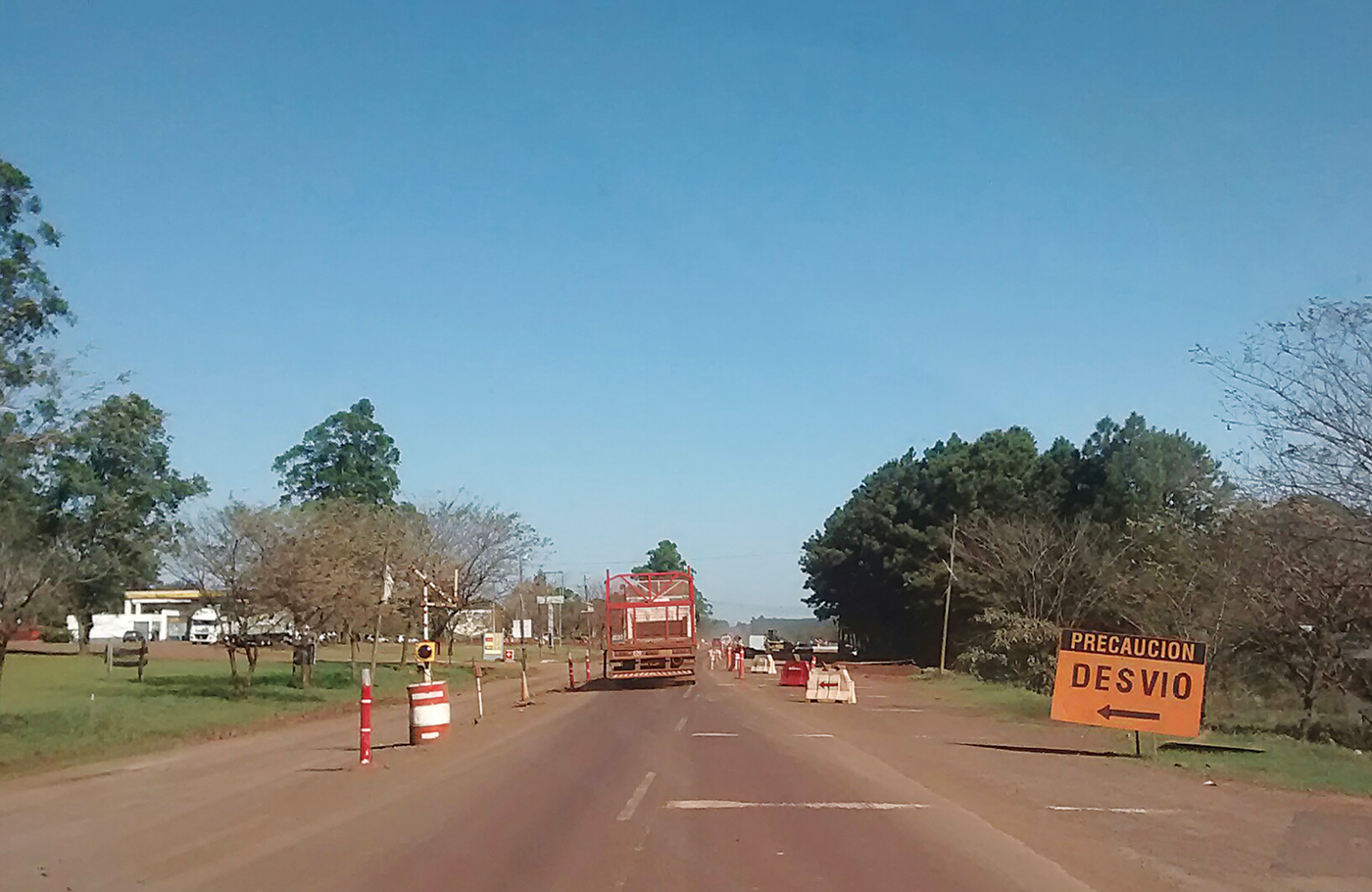Covid-19 in South America: many lessons learnt
Covid-19 in South America: many lessons learnt
The Covid-19 pandemic has impacted on road transport in all corners of the globe. ALEJANDRA EFRON reports on the position in South America, where truck drivers have put their lives at risk in order to deliver essentials.
Many countries in my region underwent elections in the last quarter of 2019, then changed president between December and January. But January and February are summer holidays so mid-March was the time to start business. We were all getting ready when the Covid-19 virus started to spread, and we saw borders closed, leaving people and goods stranded on the way until further decisions were made.
Transport companies and truck drivers stepped up to the challenge. They were needed to guarantee supplies – food, water, hygiene products, pharmaceuticals and, not least, rubbish collection!
South America is a land of social inequalities, which are highlighted by the current economic crisis in highly urbanised areas. To provide context, we are talking about transporting drinking water and cooking gas to some places at a time when the World Health Organization (WHO) is promoting the importance of hygiene. For example, a slum in the outskirts of Buenos Aires was without water for eight days.
This article consists of four parts. The first two cover the reactions to the spread of the virus, which can be summarised in two words: discrimination and recognition. In my research, for which I did a few interviews, I have seen these two words being repeated over again. Thirdly, I consider the lessons we can learn as road transport technology professionals. Lastly, in part four, I provide a little food for thought …
First reaction: discrimination
According to the Merriam-Webster English dictionary, the word “discrimination” is derived from Latin, meaning “to distinguish, to separate”, and can have a positive or negative connotation. In this article I shall take the negative one, “the practice of unfairly treating a person or group differently from other people or groups of people”.
By mid-March the virus started to spread. First, country borders started to close to non-residents, followed by provinces, states and municipalities. It was no longer possible to cross country or state borders unless you had a special permit. (The permit was a paper document, ironically.) The rules were introduced overnight, and many were left outside their homes without the possibility of return. A driver told me that he was away from his home for 54 days while the state experienced a complete lockdown. Fortunately, he works for a large company which took care of him, but others were not as lucky. It was a logistics nightmare.
It is worth noting that those checkpoints or blockages put in place by the municipalities and provinces to isolate their inhabitants varied from dirt ramparts to barbed wire and a simple sign. One driver commented that, as the quarantine started, transportation work increased. Unilaterally and with no warning, municipal authorities decided to block the many entrances, leaving only one or two as the town checkpoint. This decision meant that trucks had to travel many more kilometres trying to find ways to circumvent the towns. They were often stuck in queues for more than 12 hours. In the cold Patagonian region, he said, idling in order to provide himself with some heat was essential. But it was stressful watching the fuel gauge drop as the hours passed and wondering if there was fuel at the next station (if he even reached it).
Municipalities did this out of fear and also because they know local behaviour. For example, one driver tried to cross a control with five men hidden in the trailer, without any permit to work or circulate, and they were detained at the checkpoint.

The president of the Brazilian National Association of Cargo Transport and Logistics (NTC), an entity founded in 1963 representing about 10 500 companies operating a fleet of more than 1,5 million trucks, could not have said it more clearly: “In my 78 years of life, I have never faced a crisis like the one the world is going through with this pandemic. It is a difficult situation because we need to isolate ourselves to live and, at the same time, we need to have the resources to survive. We know that it is difficult not to be affected by this crisis, but we must continue, within the possibilities, supplying the country.”
A similar cry was heard from other transport associations indicating that “drivers put their lives at risk to carry food and are mistreated by the population. Towns have individually decided to place checkpoints so that trucks would not be able to enter the town or even stop at the crossroads, service stations closed or if they were opened, entrance to go to the bathroom or buy something to eat is denied”.
The understanding that drivers have the same fears as everyone else about contracting the virus was not considered. Or worse, as one driver sadly told me, “I am mostly afraid of getting the virus and taking it home to the family. And yet I have to work and eat alone at the side of the road because I am discriminated against in towns I take supplies to, sent away from shops where owners have known me for ages …”.
Second reaction: recognition
One of the meanings of the word “recognition” is “acknowledgement, especially formal acknowledgement of the political existence”. In Spanish, there is a saying “No hay mal que por bien no venga”, which is similar to the English saying, “it’s an ill wind that blows no one any good”.
In Argentina, after hearing the concerns, truck dealers and manufacturers such as Scania, Mercedes-Benz, Volkswagen, as well as fuel companies like Shell and the state-owned YPF, opened their doors to truck drivers and workers so that they could have a warm meal, a place to rest safely and a wash. YPF committed to establish a 24-hour service system around service stations so that workers could help in extraordinary circumstances. They vowed to keep parking facilities sanitised at all times, guaranteed the supply of edible products and soap, and ensured that drivers had adequate toilet facilities in order to maintain hygiene and cleanliness. Readers, you do not want to know the state of these facilities before.
In the first week of June, the Argentine government together with the transport associations held a meeting where a Covid-19 Emergency Protocol for general and dangerous goods on national roads was presented. The protocol establishes actions to prevent the spread of the virus, applicable to the different stages of the trip (loading, travelling, stops and unloading) and the sanitary conditions that the truck must have, in line with WHO recommendations. Although, I must say, many of the drivers with whom I have travelled keep their truck so clean that any WHO recommendation is counterproductive! But, most importantly, in that meeting truck drivers and transport owners were finally recognised for the effort made during the three months of quarantine. By the way, note that our national closedown lasted until October; however, provincial and municipalities continue to place restrictions, including requiring a recent negative PCR test.
The Brazilian NTC has been working together with all associated entities to receive government recognition for measures that help ease the flow of transporting cargo.
In Colombia, the Transport Ministry started “Heroes of the Road”, a national tribute that recognises the work of truck and bus drivers as well as road workers whose daily effort and commitment allowed the country to ensure supplies so that people could stay home. The initiative allows Colombians to show their gratitude by leaving thank-you messages in the portal.
Heroes on the Road: it is the moment to applaud and thank. Source.

So, what about road transport technology?
The speed of changing habits as a way of coping with the spread of the pandemic of Covid-19 has not let us stop to think what happened in these months. Technologies which were being tested with all the safety protocols and implementation procedures were fast-forwarded; other proven technologies which were available but not implemented because of force of habit at the workplace were implemented overnight. Furthermore, practices and behaviours that we thought had been eradicated were resurrected in the name of the “greater good”. There was seemingly no plan or proper thought process involved, no safety protocols. Paraphrasing from Monty Python’s The Life of Brian, “we were making it up as we went along.”
In that Argentine Covid-19 Protocol, it was stipulated that loading and unloading activities had to be carried out by local people. Also, to facilitate and reduce paperwork, transportation documents had to be sent electronically to the transport company and/or driver, providing a timeslot.
Drivers loved the new system! It was safe for them since they did not leave their truck, let alone enter an office, talk to anyone, or touch anything. Everything was digital. Why was it not done before? “Well, some adjustments were fast-forwarded by the pandemic, and this took us out of our comfort zone. The risks of implementation that previously would have been carefully measured were ignored and the ‘just do it’ style was imposed, solving mistakes as they presented,” I was told.
A forestry manager commented that the company decided to implement only 75-tonne bi-trains (interlinks or B-doubles) in their operation instead of a large and diverse fleet, with different weights and dimensions to check every time. By working around the clock, it meant fewer transport operators to deal with, and better efficiency and health and safety for all involved since human contact was reduced. Bi-trains in Argentina are required to have certain safety technologies for both truck and trailer (some compulsory, others optional), and this appears to have helped result in little to no accidents during this time, both in the forest or while unloading the logs or loading the final product.
Another driver told me that the technology of the truck he was driving was a guarantee of safety and comfort. EBS, stability control, approach and obstacle sensors, and diverse driver assistance devices helped him avoid potential accidents at checkpoints or obstacles on the road. These were previously non-existent. Although he considers that these technologies should be mandatory in all vehicles, he mentioned that many drivers do not use these devices because they do not know how to use them, and they don’t understand their benefits. Of course, he was one of my trainees at the School for Bi-train Drivers!
Another driver I interviewed told me that their company gave them a mobile phone with a speed warning application, which is used together with GeoFencing systems. These apps and systems provide not only safety but companionship to the driver since the app´s voice explains the road signs and what is going on ahead (which is especially useful when signage road markings are poor). The driver was particularly adamant that electronic calibrations in the wheels should be compulsory, as well as air suspension and parking sensors. In Argentina, only bi-trains, fuel trucks and some general goods transport companies are using modern technology which is compulsory in bi-trains, but these companies have seen their benefits in safety and fuel consumption for other types of vehicles too.
Food for thought…
In short, available road transport technology and knowledge can help reduce unwanted contact that can spread illnesses. Appropriate legislation and resources to provide for the wider use and control of intelligent infrastructure, vehicle telematics, high-performance vehicles, logistics personnel special training, among other measures, will enable humans to work in a semi-autonomous way from a safe place. The Covid-19 pandemic showed that the road freight transporters and related professionals in South America are the good guys, providing a vital service, and not the villain as some deem them. So maybe this is the time to request our place at the decision-making table.
• This article was originally published as a newsletter of the International Forum for Heavy Vehicle Transport & Technology (HVTT Forum). Alejandra Efron is the Forum’s Vice President for South and Central America, and is based in Argentina. The HVTT Forum exists to promote and support the development of road freight transport technology, safety and policy, and to facilitate information exchange between researchers, policymakers, regulators, road agencies and the transport industry. It does this by running regular international symposia, electronic discussion groups and other relevant initiatives. For more information, visit the website at https://hvttforum.org/, or subscribe to the mailing list by contacting the Information Officer at cdsaxe@csir.co.za.
Published by
Focus on Transport
focusmagsa




